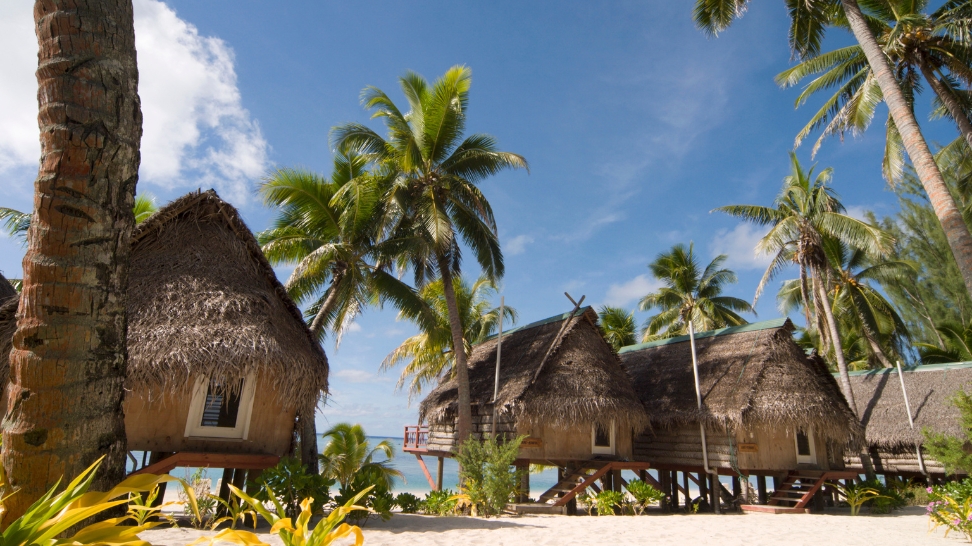Would you like to set up an offshore trust to protect your assets? This could keep cash, stocks, real estate, and other assets safe from creditors, lawsuits, and more.
Before you start an offshore trust, search for the right offshore jurisdiction. The Cook Islands and the Bahamas have become two leading jurisdictions for those interested in using offshore trusts for asset protection.
Comparing a Cook Islands vs. Bahamas trust can help you decide which option is better. See how they stack up below.
Introduction to Offshore Trust Jurisdictions
While we will spend the bulk of this article comparing a Cook Islands vs. Bahamas trust, these are just two of the many offshore jurisdictions you should consider. Other options include:
If you have not ever established an offshore trust, you may wonder why choosing the right jurisdiction is important. Each has its own asset protection laws, so some offer better foreign judgment protection than others. The Cook Islands and Bahamas trusts stand out as two options delivering the offshore jurisdiction advantages Americans look for. You cannot go wrong with either, but you should still compare a Cook Islands vs. Bahamas trust before deciding which direction to go.
Key Factors When Choosing Between Cook Islands and Bahamas Trusts
Carefully consider a few important factors as you choose between Cook Islands and Bahamas trusts, including the following:
- The asset protection laws that govern each jurisdiction
- The beneficiary confidentiality that jurisdictions provide
- The regulatory environments regarding offshore trusts in these jurisdictions
- The cost of creating offshore trusts within these jurisdictions
- The enforcement of foreign judgments in these jurisdictions
Each of these elements will affect the effectiveness and longevity of a trust used for asset protection.
Overview of Cook Islands Trusts
The Cook Islands has earned a reputation for providing Americans with some of the strongest asset protection laws. The offshore jurisdiction helped make history in 1984 when it introduced the precedent-setting Cook Islands International Trusts Act.
However, this is far from the only reason to consider going with a Cook Islands vs. Bahamas trust. A Cook Islands trust also offers:
- Limited recognition of foreign judgments
- Short statute of limitations for creditor claims
- No publicly accessible register of trusts to maintain privacy and confidentiality
The offshore jurisdiction even goes as far as to hold any legal proceedings tied to trusts privately to keep the identity of settlors and beneficiaries under wraps.
Overview of Bahamas Trusts
Although the Bahamas are not as influential within the offshore trust world as the Cook Islands, it has transformed into an offshore jurisdiction many Americans trust. People appreciate that Bahamas trusts are structured similarly to trusts in the U.S., making it easier to understand how they work.
Bahamas trusts are also governed by asset protection laws like the 1991 Fraudulent Dispositions Act that make it difficult for creditors, plaintiffs in lawsuits, and others to seize assets from offshore trusts. A Bahamas trust also offers:
- Privacy and confidentiality for trust settlors and beneficiaries
- Flexibility when picking the right offshore trust structure
- Lower setup costs for those setting up offshore trusts
Much like the Cook Islands, the Bahamas has earned a strong international reputation for extending attractive offshore trust options covered by strict asset protection laws.
Comparative Advantages of Cook Islands Trusts Over Bahamas Trusts
The debate over whether you should set up a Cook Islands vs. Bahamas trust or vice versa rages on because of the benefits both offshore jurisdictions provide. But when you take an even closer look at these two jurisdictions, you will find that they each offer comparative advantages over the other.
Here is what makes a Cook Islands trust stand out:
- Provides stronger asset protection laws
- Extends foreign judgment protection
- Delivers privacy and confidentiality for trust settlors and beneficiaries alike
- Offers a legal infrastructure optimized for protecting high-value assets
- Comes with a well-established debtor-friendly reputation
Real-World Scenarios: Choosing Between Cook Islands and Bahamas Trusts
Are you a high-net-worth individual looking to shield the assets you have been able to accumulate throughout your life from creditors, lawsuits, and other factors? Choosing a Cook Islands vs. Bahamas trust might be the right move.
Cook Islands trusts are known for providing more asset protection — including foreign judgment protection — than those in other offshore jurisdictions, such as the Bahamas. These trusts also offer increased privacy and confidentiality, which makes them well worth it for many Americans despite their elevated costs.
Bahamas trusts, on the other hand, are ideal for those seeking a more affordable offshore trust option. Though they do not deliver the same level of asset protection as Cook Island trusts, they provide more flexibility when people are first setting up trusts and choosing structures for them.
Make sure you consider your various asset types, potential creditor challenges, and regulatory preferences when comparing Cook Islands vs. Bahamas trusts. This will make selecting the right option for your specific circumstances easier.
Make the Right Choice When Deciding Where To Set Up an Offshore Trust
When considering a Cook Islands vs. Bahamas trust, do not forget to research the asset protection laws for each offshore jurisdiction. Keep key issues like privacy, confidentiality, and the trustee discretion that each option allows in mind as well.
Think about consulting an asset protection attorney to align your trust choice with your long-term financial goals, too. Contact Blake Harris Law for practical advice on which offshore jurisdiction you should choose.





